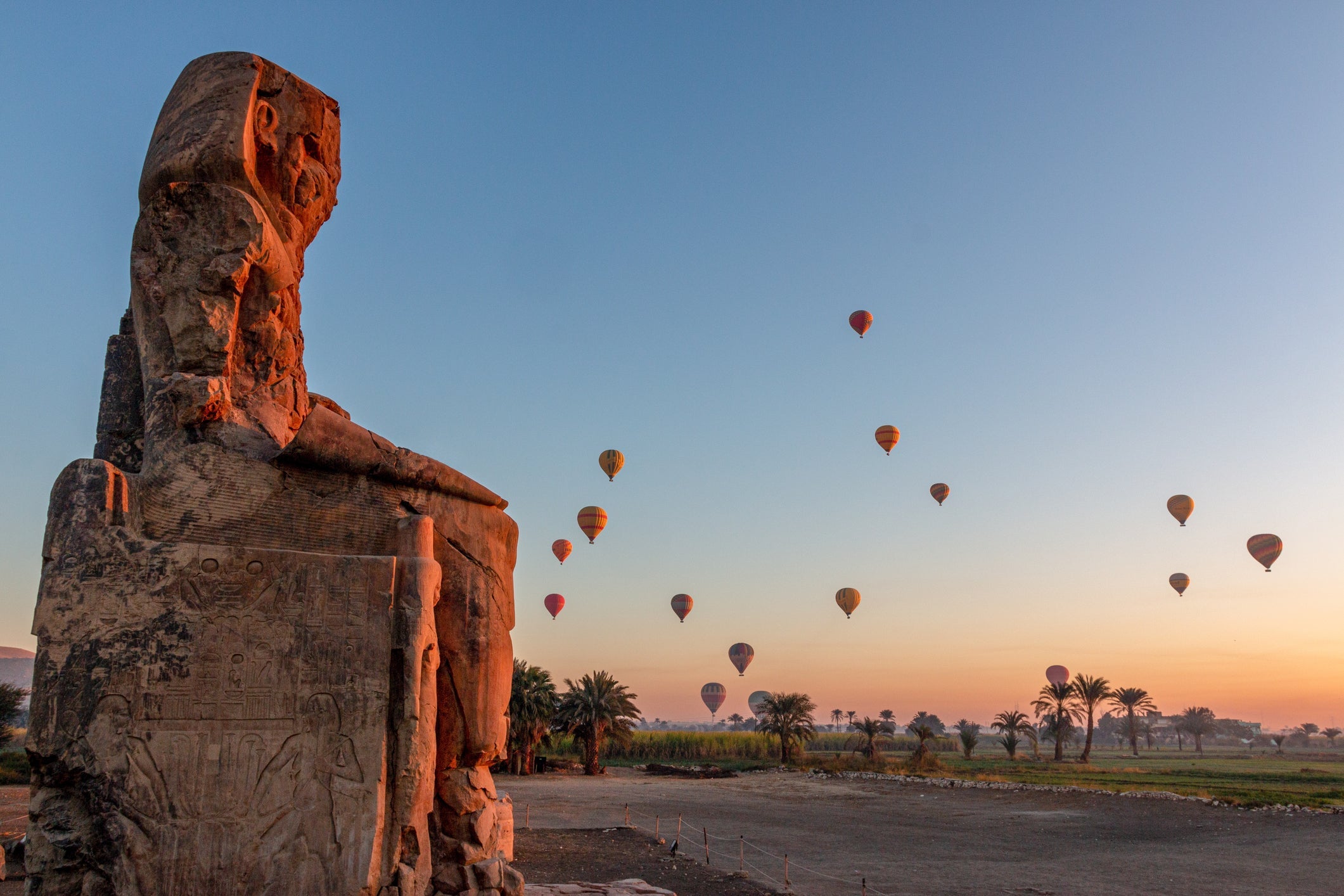This year or next might be the perfect time to visit Egypt: A reopening guide
As the travel industry reopens following COVID-19 shutdowns, TPG suggests that you talk to your doctor, follow health officials' guidance and research local travel restrictions before booking that next trip. We will be here to help you prepare, whether it is next month or next year.
Egypt has been a mythical destination for millennia. Prominently featured in some of history's earliest stories, this mighty nation lives on today in modern culture as one of the most exciting countries to explore worldwide
Related: It could be time to add Egypt back to the bucket list
TPG former staffer Carissa Rawson once spent an entire semester abroad living in a Hilton hotel in Cairo, and TPG founder Brian Kelly has fond memories of exploring Egypt and Jordan together with his dad, the original Points Guy.
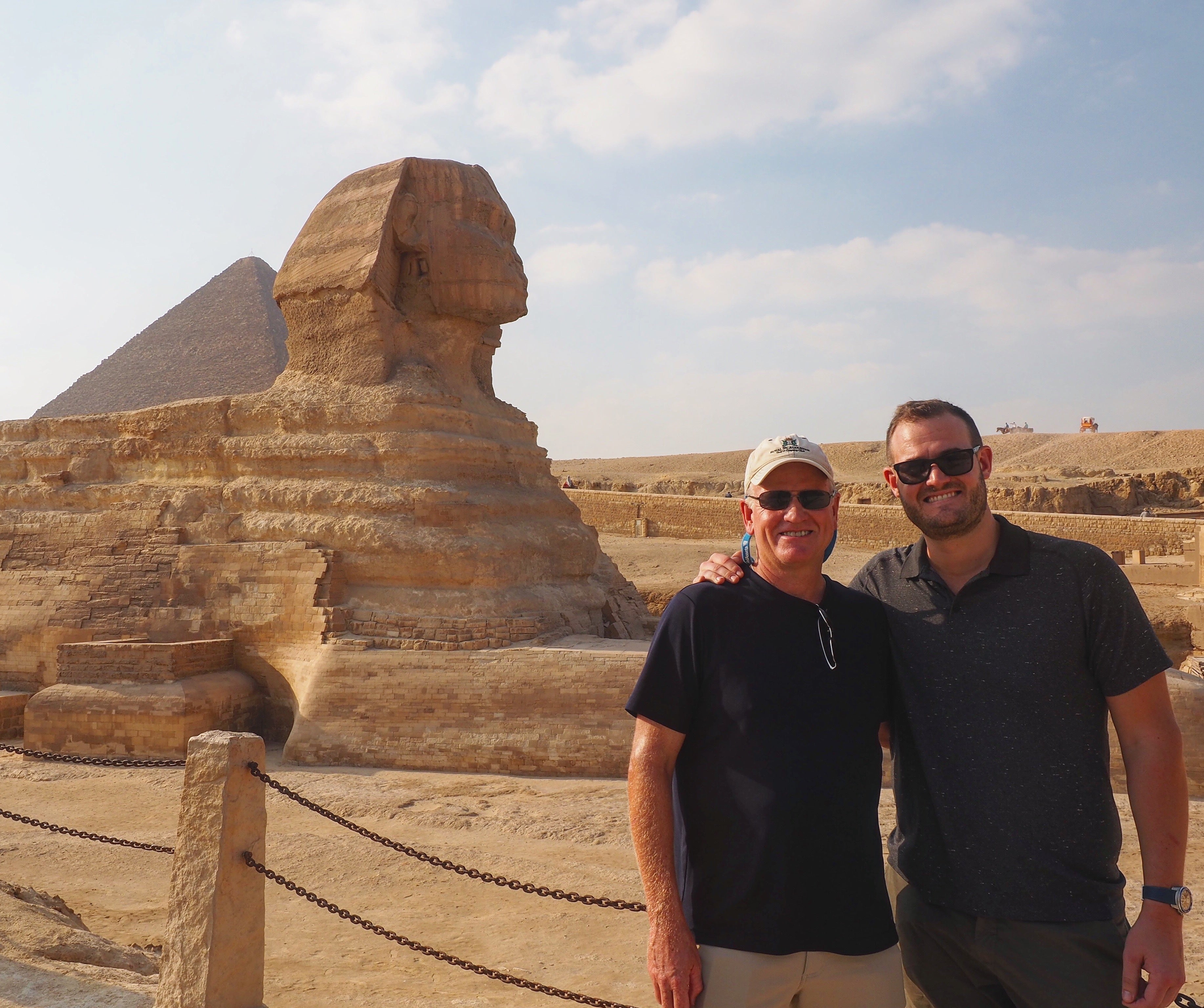
Unfortunately, most U.S. travelers haven't been able to replicate Brian's epic father/son trip or Carissa's amazing hotel redemption for most of this year, since the country closed its borders to international tourists in March. The situation has hurt the country too: Tourism accounts for five to 15 percent of the country's GDP between indirect and direct business.
Sign up for TPG's daily newsletter
Fortunately, Egypt reopened on July 1, including to U.S. travelers. Here's what you should know before you visit.
Related: Dreaming of visiting Egypt
[table-of-contents /]

Before Departure
First things first: Egypt is currently under a Level 4: Do Not Travel advisory from the U.S. State Department, and a Level 3 Travel Health Notice from the Centers for Disease Control and Prevention (CDC). As of Sept. 8, there have been just over 100,000 cases of COVID-19 throughout Egypt, with 5,500 deaths. (For context, the U.S. has had 6.3 million cases and more than 191,000 deaths.)
Related: Guide to world landmarks reopening
That being said, the country of 98 million people has been very cautious about arrival protocols for incoming tourists. Before you arrive, you'll need to take note of the following requirements.
U.S. travelers need tourist visas to enter Egypt. Single-entry tourist visas for 30 days can be obtained upon arrival at Egyptian airports for $25, unless you are arriving from the Taba point on the Israel border. A multiple-entry visa is available for $60. E-visas are available online through this link.
There is no mandatory quarantine upon arrival, but all arriving international travelers, including Egyptian citizens, must present a negative COVID-19 PCR test dated within 72 hours of arrival time. (Another website states that the tests must be dated within 48 hours of arrival time, which pretty much requires an overnight test result.) PCR test certificates must be presented in physical form; digital copies will not be accepted. Results must be either in English or Arabic.
If you can't get a PCR test in time before departure, tests are available upon arrival for $30 at the Hurghada (HRG), Sharm El Sheikh (SSH), Marsa Alam (RMF) and Taba (TCP) airports.
Related: Reader hall of fame: Qsuites and Cairo
Travelers also need to show proof of travel insurance covering COVID, as well as proof of health insurance.
Once you arrive
All tourist sites and locations, such as the Nile Valley, Cairo, the Red Sea and South Sinai are open. The government has also halved entrance fees for all museums and archeological sites.
The U.S. Embassy website for Egypt states that restaurants, cafes, sports clubs and movie theaters currently operate at 50 percent capacity. Restaurants and cafes must close by midnight, while other businesses, including grocery stores, are required to close by 10 p.m.
Public parks and beaches remain closed, although resorts with private beaches are allowed to open them to visitors at their own discretion. Face masks are required in all public settings, including on public transportation.
Flights and hotels
Flights into Cairo are reasonably plentiful on multiple airlines.
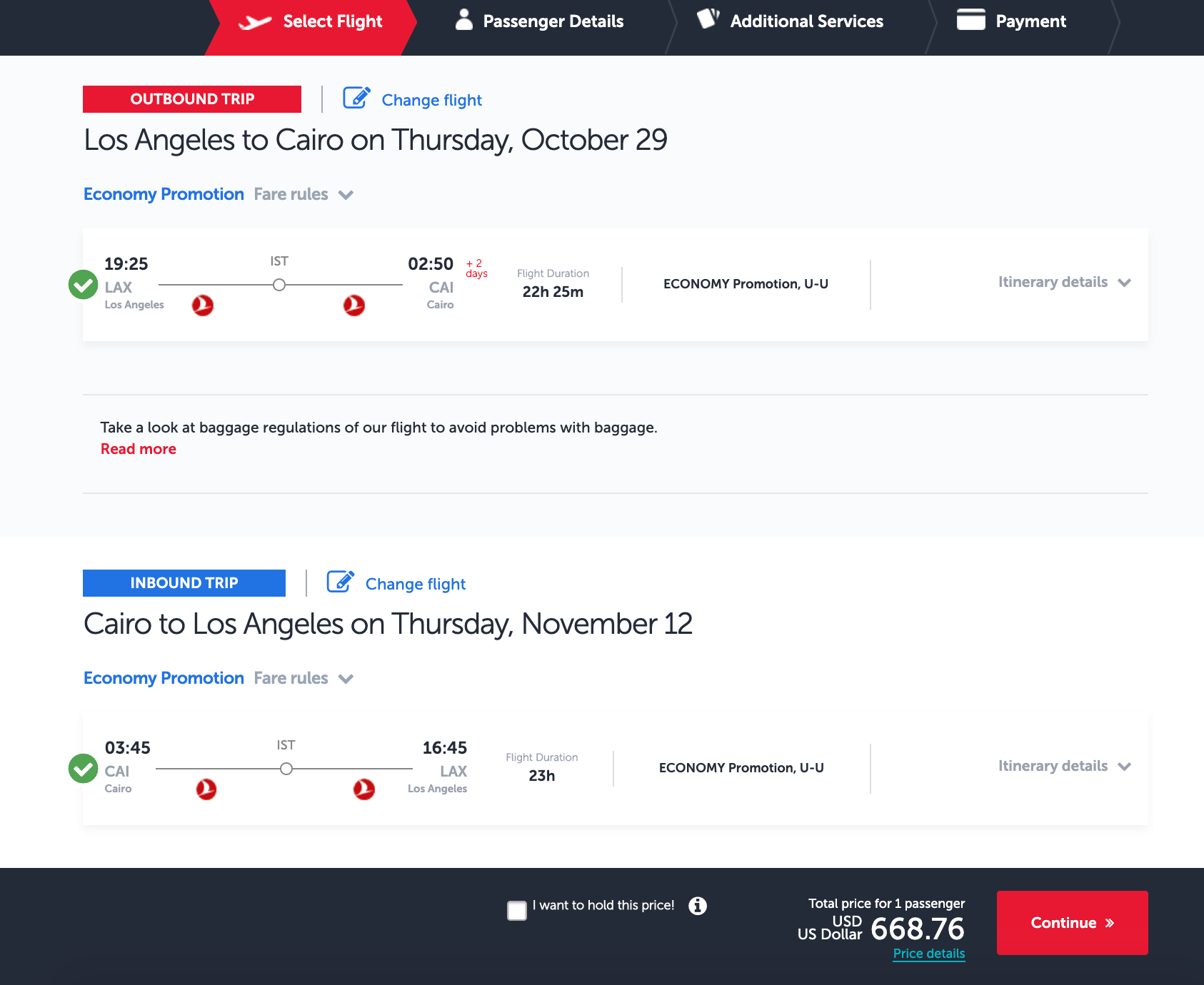
You can fly from Los Angeles to Cairo this fall for around $700 round trip on all three major airline alliances: $669 on Turkish Airlines, $753 on Delta/Alitalia in October, or $727 on Royal Air Maroc in November.
For award flights, economy routes are 94,000 miles and $89 on United, 75,000 miles and $153 on Delta or 80,000 miles and $137 on American Airlines.
Hotels are equally accessible, with more than 450 properties available in October on Hotels.com.
Cairo offers some of the world's best values for cash rates and award redemptions alike, with king bedrooms at the newly-open St. Regis in Cairo available for just 35,000 Marriott Bonvoy points or just $215 per night in February. (Just in case one St. Regis isn't enough for you, you'll be able to pick between two come January 2021 when the St. Regis Almasa Hotel opens.)
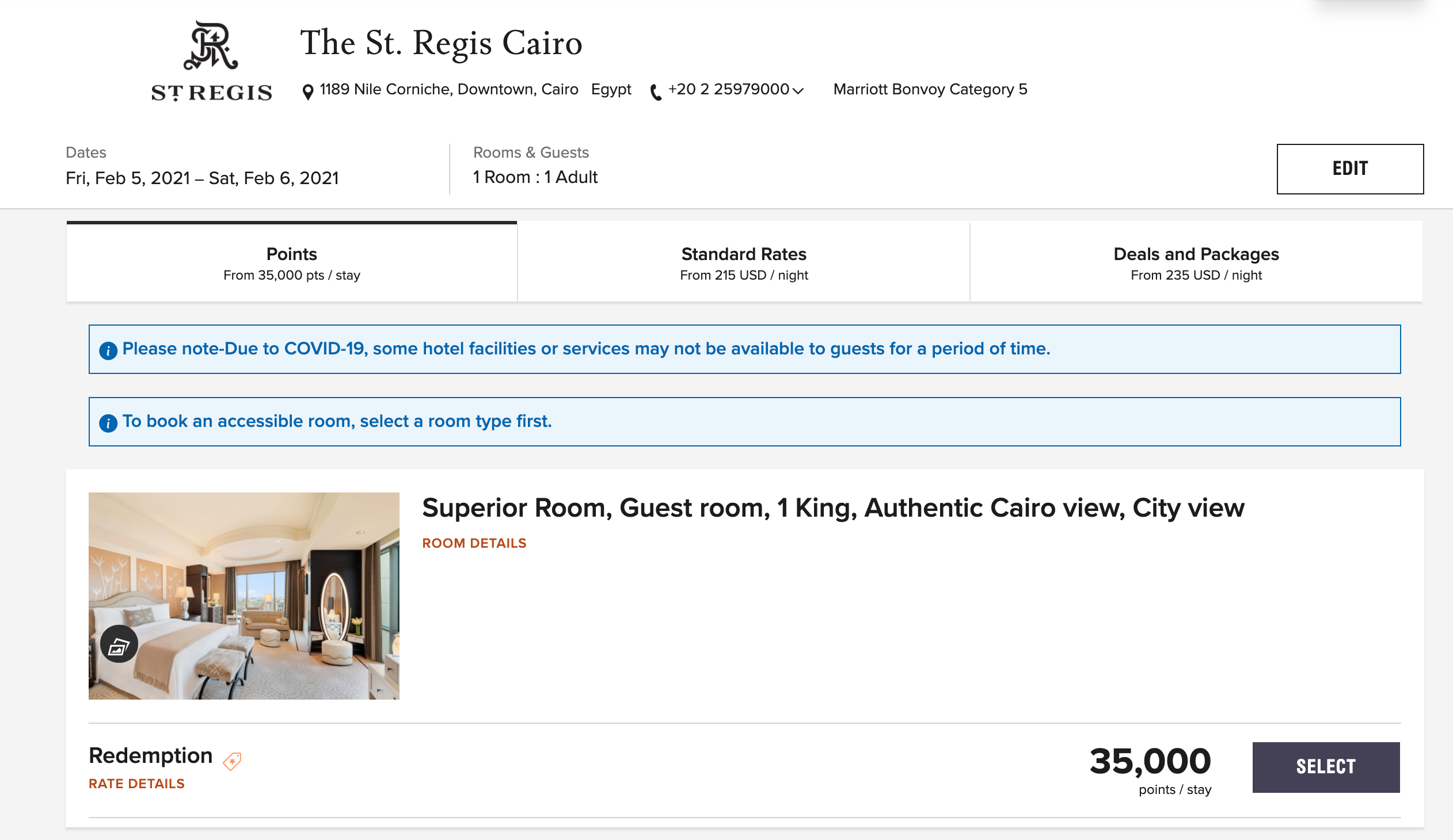
Rates are similarly competitive at Hilton properties ranging from 20,000 at a number of properties, up to the Conrad Hilton, which goes for 24,000 Hilton Honors points per night. Is this a good deal, you ask? For context, a Hilton property in small-town College Station, Texas, costs 19,000 points on a weeknight.
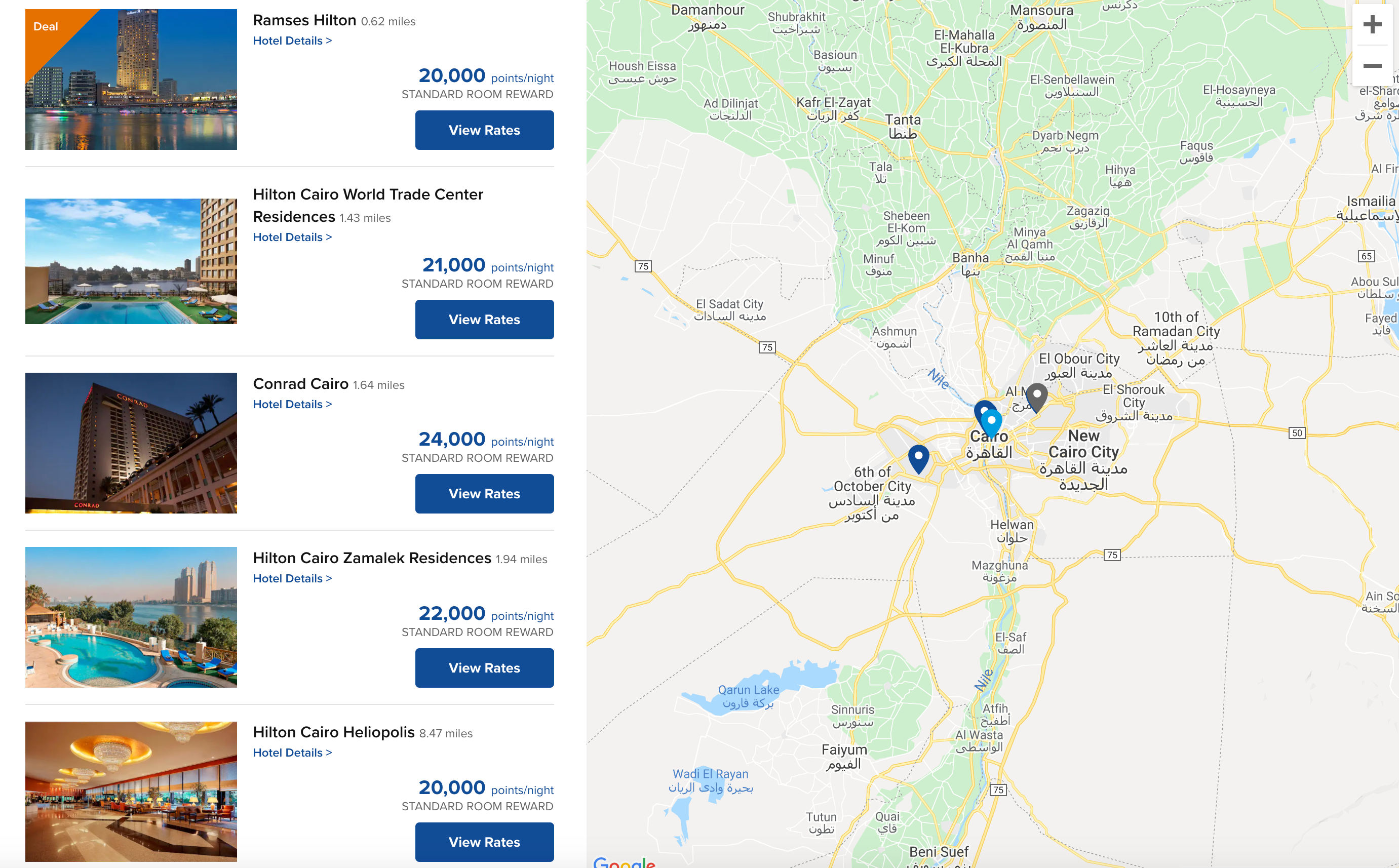
Hyatt fans will be sad to see that the Hyatt Regency Cairo West is closed until January 2021. But rates are great in February when the property reopens, with prices beginning at $94 per night.
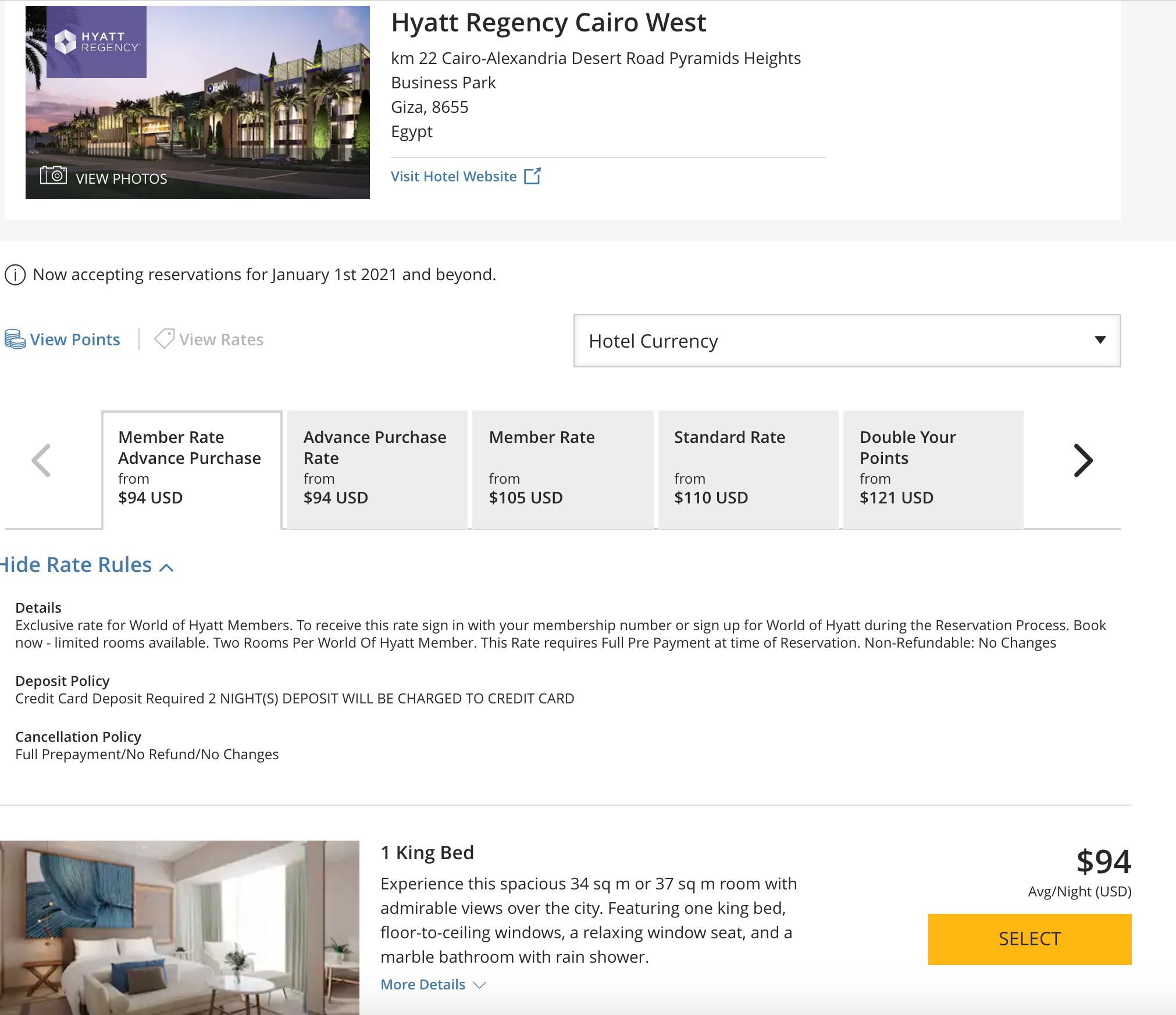
Bottom line
2020 and its accompanying disruption may not be how you anticipated seeing the Great Pyramids or exploring the ancient historical sites of Egypt. But current price points and the country's eagerness to attract new tourists may be just the nudge you need to take the plunge this year. After all, the visa requirements will always be a factor to contend with — but you might never get to visit with so few fellow tourists again.
TPG featured card
at Capital One's secure site
Terms & restrictions apply. See rates & fees.
| 5X miles | Earn 5X miles on hotels, vacation rentals and rental cars booked through Capital One Travel |
| 2X miles | Earn unlimited 2X miles on every purchase, every day |
Pros
- Stellar welcome offer of 75,000 miles after spending $4,000 on purchases in the first three months from account opening. Plus, a $250 Capital One Travel credit to use in your first cardholder year upon account opening.
- You'll earn 2 miles per dollar on every purchase, which means you won't have to worry about memorizing bonus categories
- Rewards are versatile and can be redeemed for a statement credit or transferred to Capital One’s transfer partners
Cons
- Highest bonus-earning categories only on travel booked via Capital One Travel
- LIMITED-TIME OFFER: Enjoy $250 to use on Capital One Travel in your first cardholder year, plus earn 75,000 bonus miles once you spend $4,000 on purchases within the first 3 months from account opening - that’s equal to $1,000 in travel
- Earn unlimited 2X miles on every purchase, every day
- Earn 5X miles on hotels, vacation rentals and rental cars booked through Capital One Travel
- Miles won't expire for the life of the account and there's no limit to how many you can earn
- Receive up to a $120 credit for Global Entry or TSA PreCheck®
- Use your miles to get reimbursed for any travel purchase—or redeem by booking a trip through Capital One Travel
- Enjoy a $50 experience credit and other premium benefits with every hotel and vacation rental booked from the Lifestyle Collection
- Transfer your miles to your choice of 15+ travel loyalty programs
- Top rated mobile app

